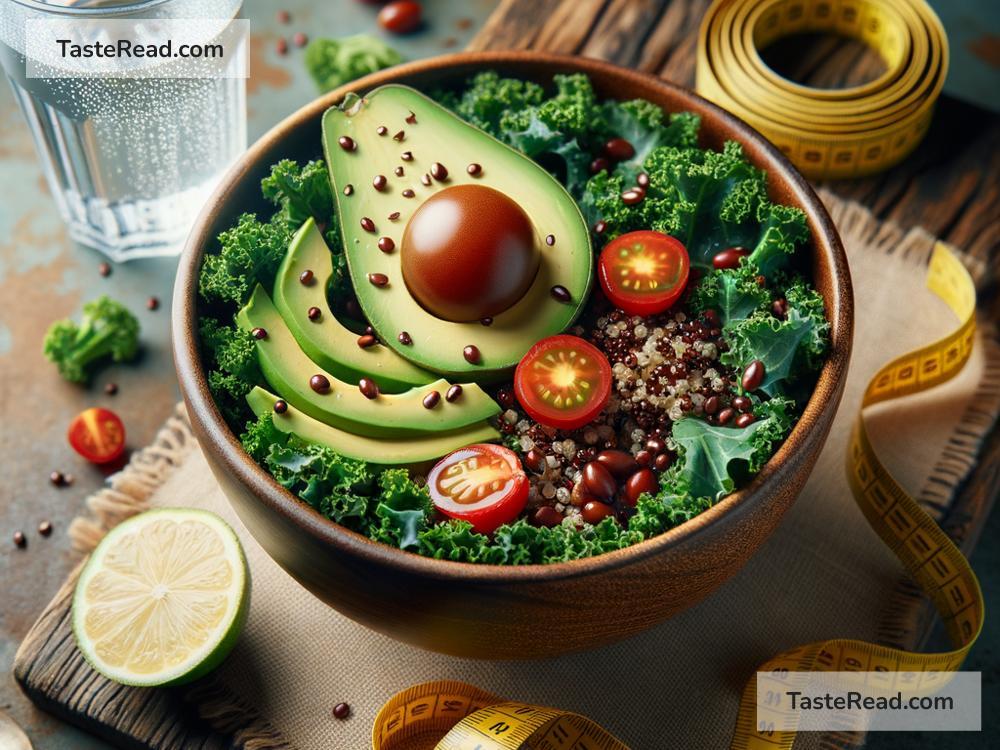Can Kale Help with Weight Management?
Kale has become a superstar in the world of healthy eating. This green vegetable has shown up in salads, smoothies, chips, and even as a topping on pizzas. But does it actually help with weight management? Let’s dive into this question and explore why kale might be a helpful ally if you’re trying to manage your weight.
What is Kale?
Kale is a leafy green vegetable that belongs to the cabbage family. It’s packed with nutrients like vitamins A, C, and K, as well as minerals like calcium and potassium. It’s a low-calorie food with high fiber content, making it an ideal choice for people who want to eat nutritious foods without consuming too many calories.
Why Weight Management Matters
Weight management is important not just for appearance, but for overall health. Carrying excess weight can lead to health issues like diabetes, heart disease, and joint problems. On the flip side, being underweight can also pose health risks. Reaching and maintaining a healthy weight involves finding a balance between eating habits, exercise, stress management, and sleep routines. The good news is that adding nutrient-rich foods like kale to your diet may help make this process easier.
How Kale Can Help with Weight Management
Here are some ways kale can support your journey toward a healthy weight:
1. Low in Calories
One of the best things about kale is that it’s incredibly low in calories. A single cup of raw kale contains only about 33 calories. This means you can eat a lot of it without worrying about consuming too many calories. For people who are trying to cut back on calories while still feeling full, kale is a great choice.
2. High in Fiber
Fiber is your friend if you’re trying to manage your weight. Foods high in fiber take longer to digest, which can make you feel full for a longer time. A cup of raw kale contains almost 1 gram of fiber. While that may not seem like much on its own, eating kale along with other fiber-rich foods can help you stay satisfied after meals.
When you feel full, you’re less likely to snack between meals or overeat at your next meal. Fiber also supports healthy digestion and can help prevent constipation—another bonus for anyone focusing on their overall well-being.
3. Nutrient-Dense
Kale is considered a “nutrient-dense” food, meaning it contains a lot of vitamins and minerals without being high in calories or fat. Eating nutrient-dense foods ensures your body gets the fuel it needs to function well while keeping calorie intake under control. For example, kale is an amazing source of vitamin K, which supports bone health, and vitamin C, which boosts your immune system. If you’re eating fewer calories as part of your weight management plan, nutrient-dense foods help keep you nourished.
4. Low in Fat
Kale is naturally low in fat, making it a good option for those who want to limit fat intake for weight management. However, it’s important to note that healthy fats—like those from avocado, nuts, and olive oil—are an essential part of a balanced diet. Pairing kale with healthy fats can actually enhance the absorption of its fat-soluble nutrients, like vitamins A and K.
5. Versatile and Easy to Add to Your Diet
One of the big challenges in weight management is sticking to your plan. It’s easier to stay committed when you enjoy the foods you eat. Kale is versatile and can be prepared in so many ways! You can toss it in a salad, blend it into a smoothie, bake it into crispy kale chips, or sauté it as a side dish. Eating kale doesn’t have to be boring—you can get creative in the kitchen to keep things interesting.
Does Kale Burn Fat?
It’s important to clear up one myth: kale doesn’t magically “burn” fat or make weight disappear. No single food can do that. However, kale can be part of a balanced diet that contributes to weight loss when combined with regular exercise, proper hydration, and mindful portion control.
Eating kale may help because it’s low in calories and makes you feel full thanks to its fiber content. If you replace high-calorie, low-nutrient foods, such as chips or cookies, with kale-based snacks, this swap could support your weight-loss goals.
Are There Any Downsides to Eating Kale?
While kale is generally very healthy, eating too much can lead to minor issues for certain individuals. For example, kale contains oxalates, which may contribute to kidney stones in people who consume large quantities. If you have specific health conditions, it’s always a good idea to check with your doctor before making big changes in your diet.
Also, kale is best enjoyed as part of a balanced diet. Eating only kale—or any other single food—isn’t a good idea, as you’ll miss out on the wide variety of nutrients your body needs.
The Bottom Line
Kale can absolutely be a helpful food in weight management, but it’s not a magic solution. It’s low in calories, high in fiber, nutrient-dense, and very versatile—all factors that make it a solid choice for someone looking to lead a healthier lifestyle.
Remember, though, that a healthy weight depends on more than just eating kale. A balanced diet, regular exercise, enough sleep, and stress management are all key parts of the process. So go ahead, enjoy your kale salads or kale chips, and take small but meaningful steps toward your goals.


